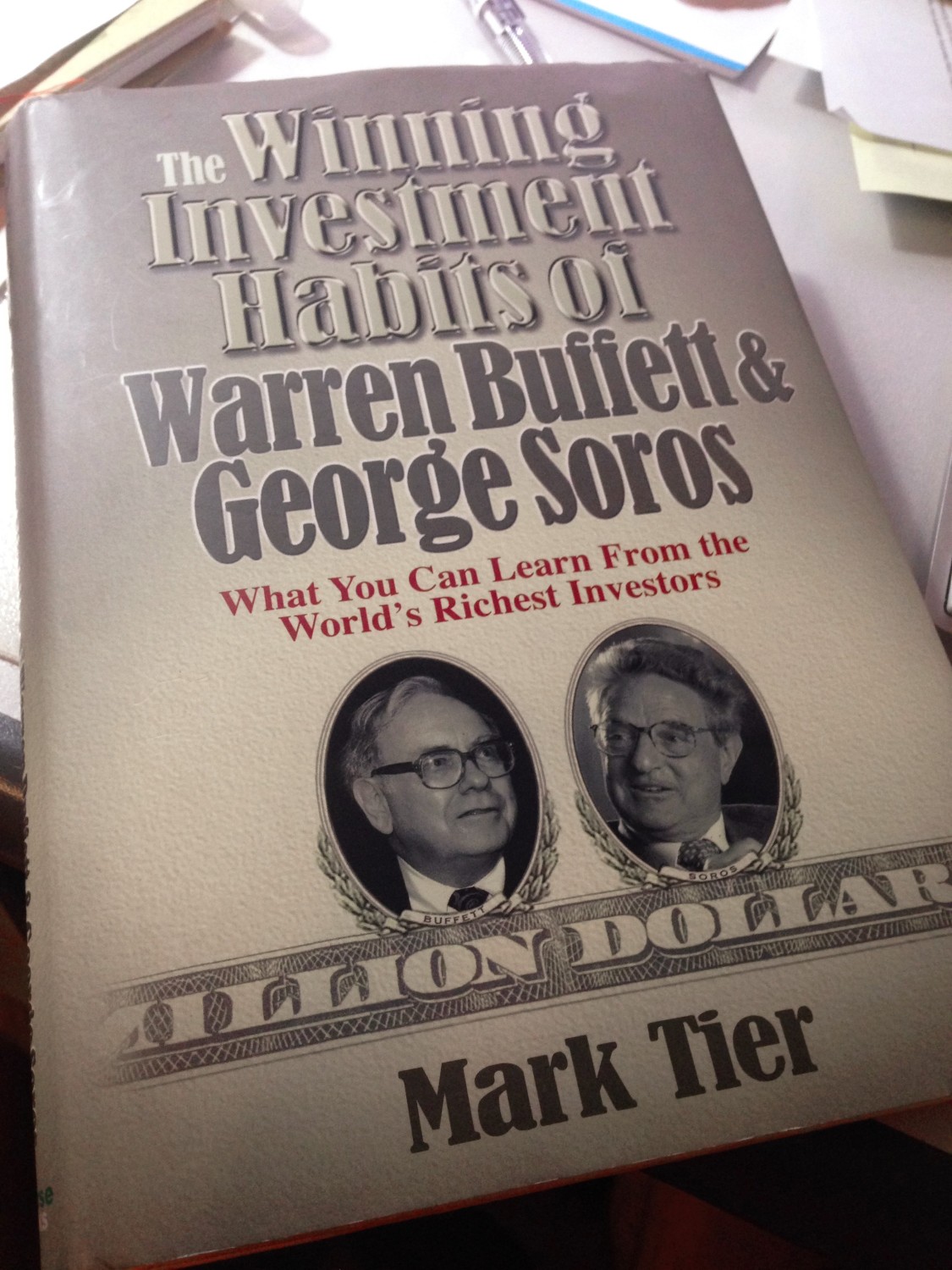The Winning Investment Habits of Warren Buffett & George Soros
This is a unique look on investment habits of two richest and most successful investors of our time. Both have different and unique approaches however some things have in common. Author mentions 7 investment sins that most investors have and then in subsequent chapters analyses them and compares them with the two successful investors.
These sins are
1) Believing that you have to predict the market’s next move to make big returns
2) The “guru” belief: if I can’t predict the market, there’s someone somewhere who can – and all I need to do is find him
3) Believing that “Inside information” is the way to make real big money
4) Diversifying
5) Believing that you have to take big risks to make big profits
6) The “System” belief: someone somewhere has developed a system that will guarantee investment profits
7) Believing that you know what the future will bring – and being certain that the market must inevitably prove you right
Most surprising for me was #4 as I also believed that diversifying is a cornerstone of all investing. But in case of Buffett and Soros, this is not true. When they find a deal that matches what they are looking for, they both go all in. When the market is down during recession, they actually complain not having enough money to buy the companies they’d like to!
Mark explains:
How diversification suffocates your profits
Comapre two portfolios. The first is diversified among hundred different stocks; the second is concentrated, with just five.
If one of the stocks in the diversified portfolio doubles in prie, thevalue of the entire portfolio rises just 1%. The same stock in the concentrated portfolio pushes the investor’s net worth up 20%.
For the diversified investor to achieve the same result, 20 of the stock in his portfolio must double – or one of them has to go up 2000%. Now, what do you think is easier to do:
- Identify one stock that’s likely to double in price; or
- Identify 20 stocks that are likely to double?
No contest, right?
There’s a valid point – diversification is a risk management. How to then avoid it?
Diversification or concentration of an investment portfolio directly correlates with the amount of time and energy put into making the selections. The more diversification, the less time for each selection.
Further continues…
Fear of risk is a legitimate fear – it’s the fear of losing money (and so breaking the first rule of investing).
But master investors don’t fear risk, because they passionately and actively avoid it. Fear results from uncertainty about the outcome, and the Master Investor only makes an investment when he has strong reasons to believe he’ll achieve the results he wants.
The book is very well structured and organised so it’s easy to read and grasp the concepts. Mark encourages readers to develop their own investment habit that they are comfortable with and to help them start, offers in the appendix The 23 Winning Investment Habits. Because trading is mainly psychological thing as people get emotional over big loses or big wins, it’s important to have a strategy and follow it, don’t get emotional.
Warren Buffett put it this way: Until you learn to manage your emotions don’t expect to manage money.
Whether you’d like to invest or not but are interested in wealth creation, read this book. You not only learn, you will learn something new.



Leave a Reply
Want to join the discussion?Feel free to contribute!